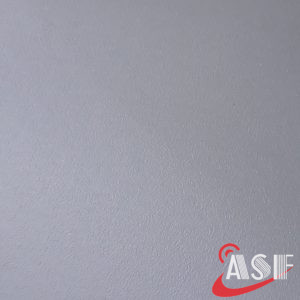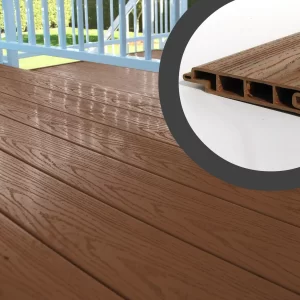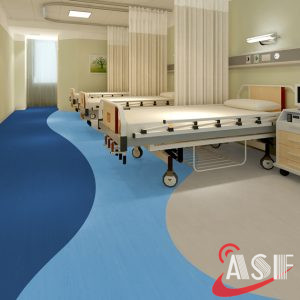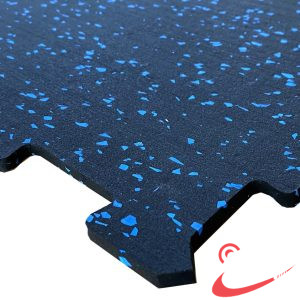Description
Commercial flooring refers to the type of flooring materials and installation methods used in commercial or non-residential spaces such as offices, retail stores, hospitals, schools, hotels, and other public buildings. Unlike residential flooring, which is designed for the comfort and aesthetic preferences of homeowners, commercial flooring is specifically engineered to withstand high foot traffic, heavy loads, and frequent use. The interior design of the building featured a stunning combination of heterogeneous floorings, with sleek marble tiles in the foyer transitioning seamlessly into rustic hardwood planks in the living area.
Best Commercial flooring options include a wide range of materials, each with its own advantages and suitability for different environments. Some common types of commercial flooring materials are:
1.Carpet: Commercial-grade carpets are designed to be durable and resistant to stains, wear, and tear. They can be made from various fibers, such as nylon, polyester, or olefin, and come in different styles and patterns.
2. Vinyl: Vinyl flooring is popular in commercial settings due to its affordability, durability, and easy maintenance. It is available in sheets, tiles, or planks and offers a wide range of designs, including wood, stone, or abstract patterns.
3. Hardwood: Hardwood flooring provides a timeless and elegant look to commercial spaces. It is available in different species, finishes, and installation methods, such as solid hardwood or engineered wood.
4. Laminate: Laminate flooring is a cost-effective alternative to hardwood, mimicking its appearance while offering better resistance to scratches, stains, and fading. It consists of a high-density fiberboard core with a printed image layer and a protective wear layer.
5. Ceramic and Porcelain Tile: These tiles are known for their durability and resistance to moisture, making them suitable for areas with high humidity, such as bathrooms or kitchens. They come in various sizes, colors, and finishes.
6. Rubber: Rubber flooring is a common choice for areas that require slip resistance and noise reduction, such as gyms, hospitals, or educational facilities. It offers cushioning, durability, and easy maintenance.
7. Concrete: Concrete flooring is often used in industrial or minimalist-style commercial spaces. It can be polished, stained, or painted to achieve different aesthetics and can withstand heavy loads and high traffic.
8. Polished concrete: Polished concrete is a type of flooring that involves a multi-step process of mechanically grinding, honing, and polishing a concrete surface to achieve a smooth and glossy finish. It has become a popular choice for various commercial and residential applications due to its durability, low maintenance requirements, and modern aesthetic appeal.
9. Stained concrete is a decorative flooring option that involves applying a color stain or dye to the surface of a concrete floor. It is a popular choice for both commercial and residential spaces, as it offers a unique and customizable appearance that enhances the natural beauty of concrete.
10. Epoxy flooring: Epoxy flooring is a type of flooring system that involves the application of epoxy resin over a concrete substrate to create a durable, seamless, and visually appealing surface. It is commonly used in commercial, industrial, and residential settings due to its excellent durability, chemical resistance, and aesthetic versatility.
The cheapest commercial flooring options
The cheapest commercial flooring options may seem attractive from a budget standpoint, but it’s important to consider several factors before making a decision. While cost is certainly a consideration, it shouldn’t be the sole determining factor when choosing commercial flooring. Here are some factors to keep in mind:
1.Durability: Commercial spaces typically experience high foot traffic, heavy loads, and various types of wear and tear. Choosing a flooring option solely based on price without considering its durability can result in frequent repairs or replacement, leading to additional expenses in the long run. It’s essential to select flooring materials that are specifically designed to withstand the demands of a commercial environment.Maintenance and
2. Longevity: Cheaper flooring options may require more frequent and costly maintenance to keep them in good condition. They may be more susceptible to stains, scratches, or damage, requiring frequent cleaning, repairs, or replacement. Considering the long-term maintenance costs and the lifespan of the flooring is crucial to assess the true value of an option.
3. Aesthetics and Brand Image: The flooring in a commercial space contributes to the overall aesthetic appeal and brand image. Cheaper flooring options may have limited design choices or may not provide the desired look and feel that aligns with the brand identity or creates an inviting atmosphere for customers. Investing in flooring that enhances the overall aesthetics and reflects the desired image can have a positive impact on the business.
4. Safety and Functionality: Certain commercial spaces may have specific safety or functional requirements. For instance, slip resistance, fire resistance, or noise reduction may be important considerations. Opting for the cheapest flooring option without considering these factors can compromise the safety and functionality of the space, potentially leading to accidents or reduced efficiency.
5. Return on Investment: While cheaper flooring options may seem appealing from a cost perspective initially, it’s crucial to evaluate the long-term return on investment. Investing in high-quality, durable flooring may result in lower maintenance costs, fewer replacements, and a longer lifespan, providing better value over time.
High-performance commercial flooring options
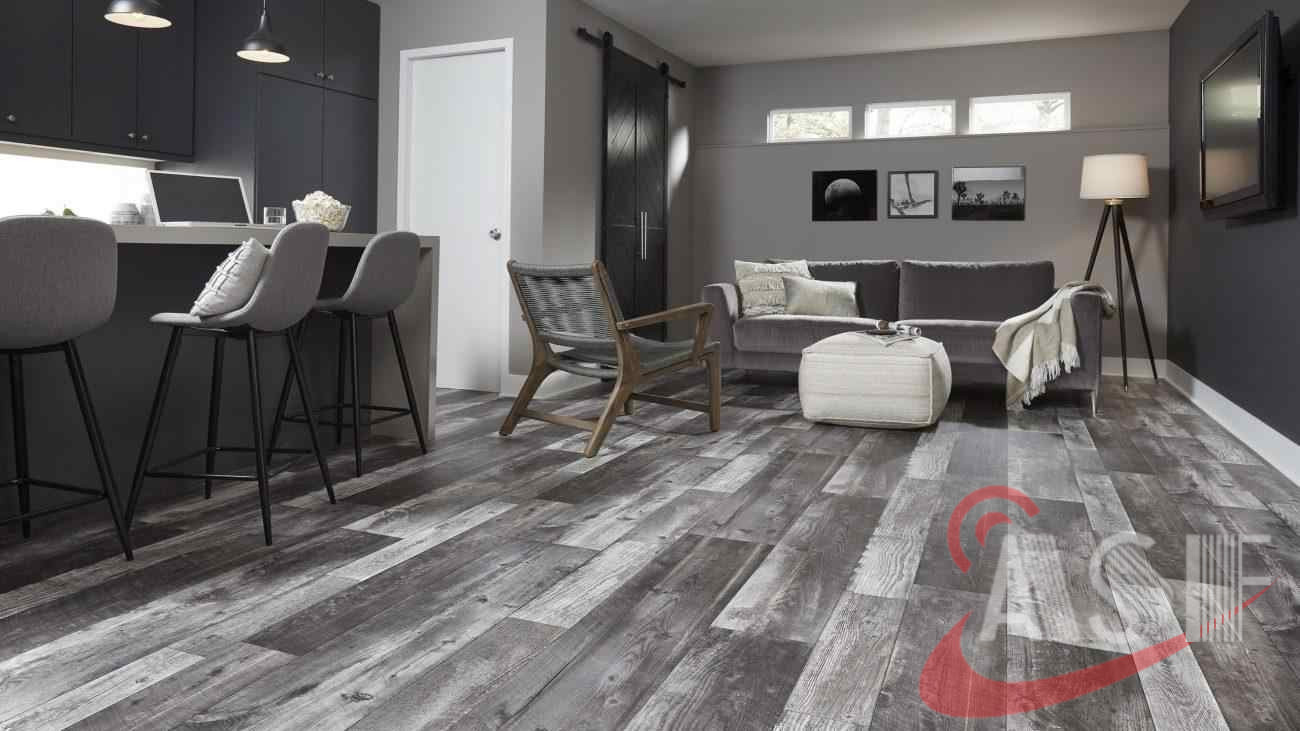 High-performance commercial flooring options are specifically designed to meet the demanding requirements of commercial and industrial environments. These flooring options offer exceptional durability, resistance to wear and tear, ease of maintenance, and often have additional features to meet specific needs such as slip resistance, chemical resistance, or antimicrobial properties.
High-performance commercial flooring options are specifically designed to meet the demanding requirements of commercial and industrial environments. These flooring options offer exceptional durability, resistance to wear and tear, ease of maintenance, and often have additional features to meet specific needs such as slip resistance, chemical resistance, or antimicrobial properties.
Heterogeneous floorings
Heterogeneous floorings are a versatile and popular choice for both commercial and residential spaces. This type of flooring is designed with multiple layers, each serving a specific purpose to create a durable and aesthetically appealing surface.
One of the key advantages of heterogeneous flooring is its wide range of design options. It can mimic the appearance of natural materials such as wood, stone, or tile, providing a cost-effective alternative without compromising on aesthetics. The design possibilities are virtually limitless, offering various colors, patterns, and textures to suit different design preferences.
Choosing the right commercial flooring supplier
Choosing the right commercial flooring supplier is crucial to ensure you get quality products, reliable service, and a satisfactory experience. Here are some factors to consider when selecting a commercial flooring supplier:
1. Product Range and Quality: Look for a supplier that offers a diverse range of commercial flooring options to meet your specific needs. They should have a selection of materials, styles, and colors to choose from. Additionally, ensure that the supplier provides high-quality products from reputable manufacturers or brands known for their durability and performance.
2. Experience and Reputation: Consider the supplier’s experience and reputation in the industry. Look for established suppliers with a track record of delivering quality products and services. Check for customer reviews and testimonials to gauge their reputation and level of customer satisfaction.
3. Expertise and Knowledge: A reliable supplier should have knowledgeable staff who can provide guidance and recommendations based on your requirements. They should be able to answer your questions, offer technical advice, and help you select the most suitable flooring options for your specific commercial space.
4. Installation Services: Inquire about the supplier’s installation services. Ideally, they should have experienced and skilled installation teams who can ensure proper.
what is supermarket floorings?
Supermarket flooring refers to the type of flooring used in supermarkets and grocery stores. It is designed to meet the unique requirements and demands of these commercial spaces.
what is Hypermarket flooring?
Hypermarket floorings refers to the type of flooring used in large-scale retail stores known as hypermarkets. These stores typically offer a wide range of products, including groceries, household items, electronics, clothing, and more. The flooring used in hypermarkets needs to be durable, visually appealing, and capable of withstanding heavy foot traffic.
how to flooring for shops?
When selecting flooring for shops, consider durability, aesthetics, and maintenance. Choose materials like vinyl or laminate that can withstand high foot traffic and are easy to clean. Opt for a design that complements your store’s branding and overall theme. Ensure proper installation by preparing the subfloor and using the correct adhesive. Consult with flooring professionals for guidance on the best flooring options for your specific shop needs. Their expertise will help you make informed decisions and ensure a successful flooring installation that enhances the shopping experience for your customers.



